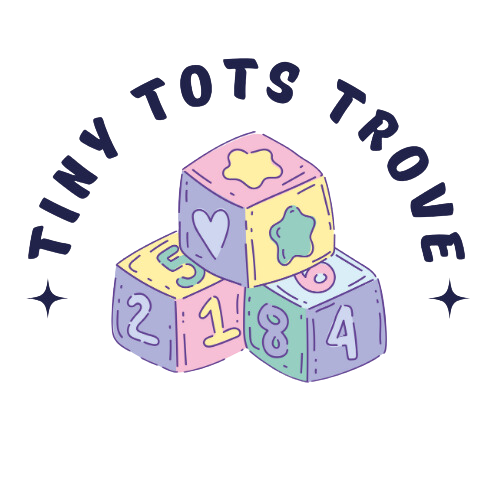
Welcome to Tiny Tots Trove! Emotional regulation is a crucial part of early childhood development, both for your little one and for you as parents. Understanding how to manage emotions can foster healthier relationships, improve well-being, and create a nurturing environment for growth. This personal guide explores strategies for regulating emotions in both children and parents, highlighting its importance in early childhood development.
Understanding Emotional Regulation
Emotional regulation refers to the ability to monitor, evaluate, and modify emotional reactions in various situations. For children, this skill is vital as they navigate new experiences and challenges. For us parents, effective emotional regulation helps model positive behaviors and create a supportive atmosphere for our little ones.
The Importance of Emotional Regulation in Early Childhood
1. Enhances Social Skills
Children who can regulate their emotions are better equipped to form healthy relationships with peers and adults. They learn to express their feelings appropriately, leading to improved social interactions. Dr. John Gottman, a renowned child development expert, emphasizes the importance of emotional coaching in enhancing social competence.
2. Promotes Academic Success
Emotional regulation is linked to academic success. Children who manage their emotions well are more focused, motivated, and engaged in learning activities. They can handle setbacks better, contributing to a positive learning experience. Dr. Adele Diamond, a leading researcher in developmental cognitive neuroscience, highlights the connection between emotional regulation and academic performance.
3. Supports Mental Health
Developing emotional regulation skills early in life helps prevent mental health issues such as anxiety and depression. Children who understand and manage their emotions are more resilient and better equipped to cope with stress. Dr. Ross Thompson, an expert in developmental psychology, underscores the significance of emotional regulation for mental health.
Strategies for Regulating Emotions in Children
1. Create a Safe and Supportive Environment
Our little ones need a safe and supportive environment to explore and express their emotions. Ensure your home is a place where your child feels secure and understood.
Tip: Encourage open communication and validate your child's feelings, letting them know it’s okay to feel a range of emotions. Incorporate activities that promote emotional expression.
2. Model Positive Behaviours
Children learn by observing their parents. Demonstrate healthy emotional regulation by managing your own emotions effectively. Show your little one how to cope with stress and frustration in constructive ways.
Tip: Practice deep breathing or mindfulness exercises together to manage stress.
3. Teach Emotional Vocabulary
Help your child develop an emotional vocabulary by naming and describing different feelings. This enables them to articulate their emotions better and seek appropriate support.
Tip: Use books and stories to introduce and discuss various emotions with your child.
4. Implement Consistent Routines
Consistent routines provide a sense of stability and predictability, which helps children feel more secure and better able to manage their emotions.
Tip: Establish regular routines for meals, bedtime, and playtime to create a structured environment. This is particularly important during the infant stage, from 3 months to 12 months.
Strategies for Regulating Emotions in Parents
1. Practice Self-Care
As parents, we need to prioritize self-care to manage our emotions effectively. Taking time for yourself helps you stay calm and patient with your little one.
Tip: Engage in activities that relax and rejuvenate you, such as reading, exercise, or hobbies. Incorporate milestone play activities that are enjoyable for both you and your child.
2. Seek Support
Parenting can be challenging, and seeking support from friends, family, or professionals can provide the emotional assistance you need.
Tip: Join parenting groups or seek counseling if you feel overwhelmed. Sharing experiences with other parents can be very helpful.
3. Mindfulness and Stress-Relief Techniques
Incorporate mindfulness and stress-relief techniques into your daily routine to help manage stress and stay emotionally balanced.
Tip: Practice mindfulness meditation, deep breathing exercises, or yoga to reduce stress and improve emotional regulation. These practices are beneficial at various developmental stages, from 4 months awake time to 21 months.
Teaching Empathy and Empathizing with Your Child
Teaching your little one empathy is a key part of emotional development. Empathizing with their feelings and showing them how to understand others' emotions will help them build strong, healthy relationships.
Tip: When your child is upset, get down to their level and listen actively. Show empathy by acknowledging their feelings and sharing similar experiences. For example, "I see that you're upset about not being able to play with your favorite toy. I remember feeling the same way when I couldn't find my book."
Emotional regulation is a vital skill for both children and parents, contributing to healthier relationships, improved mental health, and overall well-being. By fostering a supportive environment, modeling positive behaviors, and prioritizing self-care, you can help your child develop the emotional skills needed for a successful and happy life.
At Tiny Tots Trove, we are dedicated to providing resources and tools to support your parenting journey. Explore our website for more tips and products that promote healthy emotional development for your little ones. Happy parenting!
Citations
-
Gottman, J. M., & Declaire, J. (1997). Raising an Emotionally Intelligent Child: The Heart of Parenting. Simon & Schuster.
-
Diamond, A., & Lee, K. (2011). Interventions shown to aid executive function development in children 4 to 12 years old. Science, 333(6045), 959-964.
-
Thompson, R. A. (1994). Emotion regulation: A theme in search of definition. Monographs of the Society for Research in Child Development, 59(2-3), 25-52.
This guide aims to help you understand the importance of emotional regulation and how you can foster it in your child's early years.



